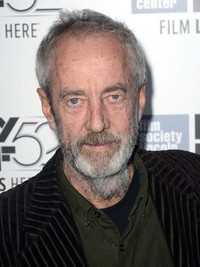Dick Pope

A cinematographer with a portfolio that included many atmospheric and engrossing movies, Dick Pope quietly became the go-to director of photography for smart, sophisticated cinema. Born in Kent, England in 1947, Pope's first foray into his craft came as a child when his father bought him a Brownie box camera. The young Pope enjoyed the visual artistry that came from shooting portraits of his friends and family, as well as the technical aspect of his new hobby. When it came time to think about a career, Pope got a word of advice from his uncle who worked for the BBC, suggesting that he try his hand as a cameraman for film and television. Pope began training at Pathé Film Laboratory in London, and was soon cutting his teeth on low budget productions for 'B' movies and low level TV productions. An experience that Pope would later recount as among the toughest and most rewarding in his early career came in 1974, when he traveled to a remote island off the coast of Sumatra to document the traditional lifestyle of the Sakuddei tribe for the documentary series "Disappearing World" (ITV, 1970-1993). Working in such a remote location with such complex gear was a trial by fire, but ultimately, the process was extremely rewarding for the young cameraman. In 1975, Pope caught a break photographing several episodes of the documentary series "World in Action" (ITV, 1963-1998), which helped him secure gigs shooting shows like "Whoops Apocalypse" (LWT, 1982). Another milestone for Pope came in 1985, when he shot the music video for Freddie Mercury's popular song "The Great Pretender." Soon, Pope was shooting feature films, developing a professional relationship with director Mike Leigh starting with "Life is Sweet" (1990) that would span decades. Throughout the '90s, the two would continue to collaborate on films like "Naked" (1993), "Secrets & Lies" (1996), and the acclaimed Gilbert and Sullivan biopic "Topsy-Turvy" (1999). Soon, Pope was being tapped by other indie-minded filmmakers, like Christopher McQuarrie, who commissioned Pope to shoot "Way of the Gun" (2000) and Jill Sprecher, who brought him on to shoot "Thirteen Conversations About One Thing" (2001). In 2007, Pope's work as director of photography on the period mystery "The Illusionist" (2006) earned him an Oscar nomination. His ongoing collaborations with Mike Leigh also continued, with critically acclaimed films like "Happy-go-Lucky" (2008) and "Another Year" (2010). Meanwhile, Pope struck up an accord with another famed director, Richard Linklater, who asked Pope to shoot his period drama "Me and Orson Welles" (2008). This working relationship proved fruitful for both parties, and they would collaborate again on the quirky crime movie "Bernie" (2011). It was Pope's partnership with Leigh, however, that would earn him his next major award nomination, this time for his work on the film "Mr. Turner" (2014), a biopic about the legendary artist J.M.W. Turner. For the movie, Pope had to recreate the aesthetic of Turner's paintings within the frames of the film itself, a complex feat that earned him a second nomination for Best Achievement in Cinematography from the Academy Awards. In a silly but memorable turn of events, Academy President Cheryl Boone Isaacs mispronounced Pope's name while reading the list of 2015 award nominations, referring to him as "Dick Poop," a slip of the tongue that quickly went viral on social media and late night television.